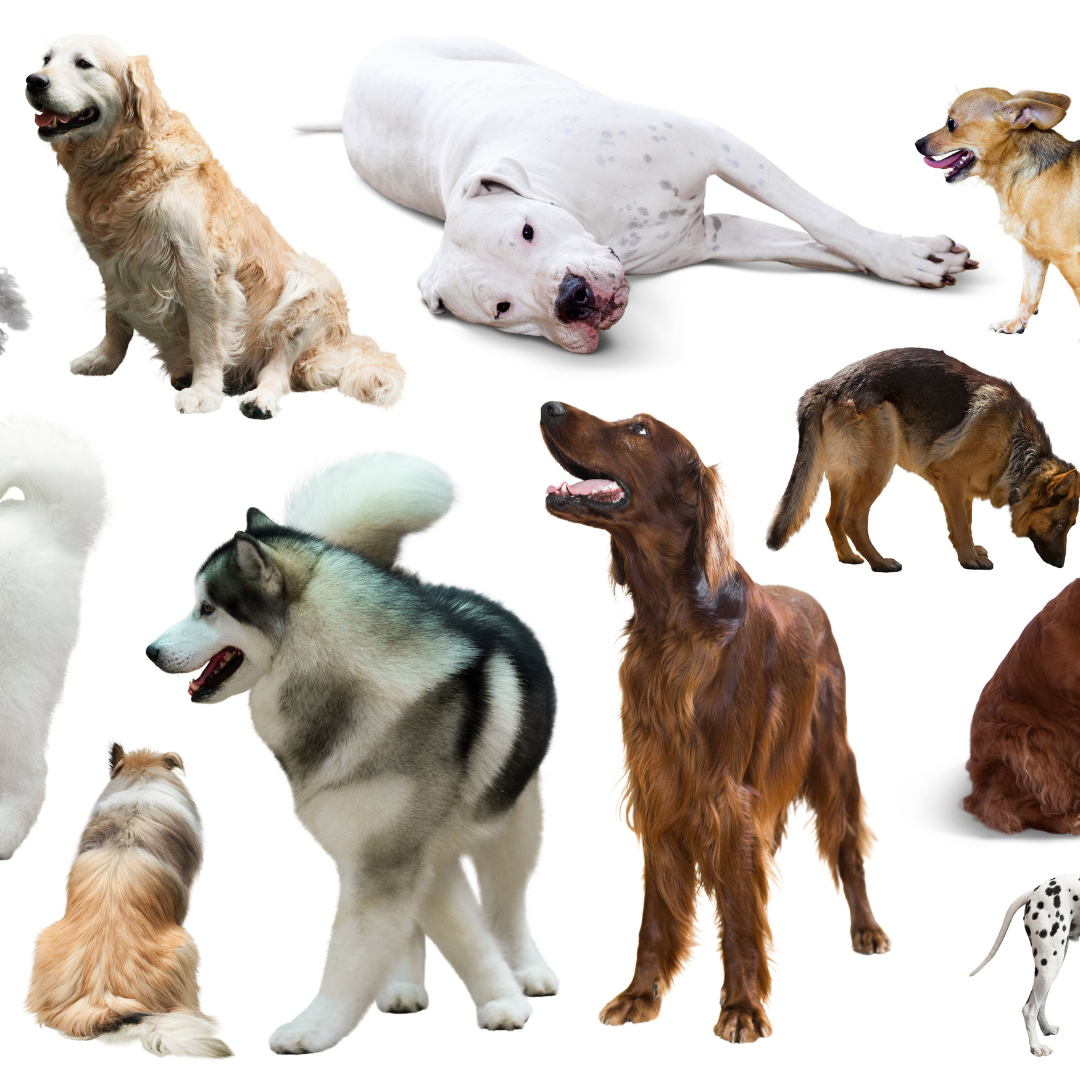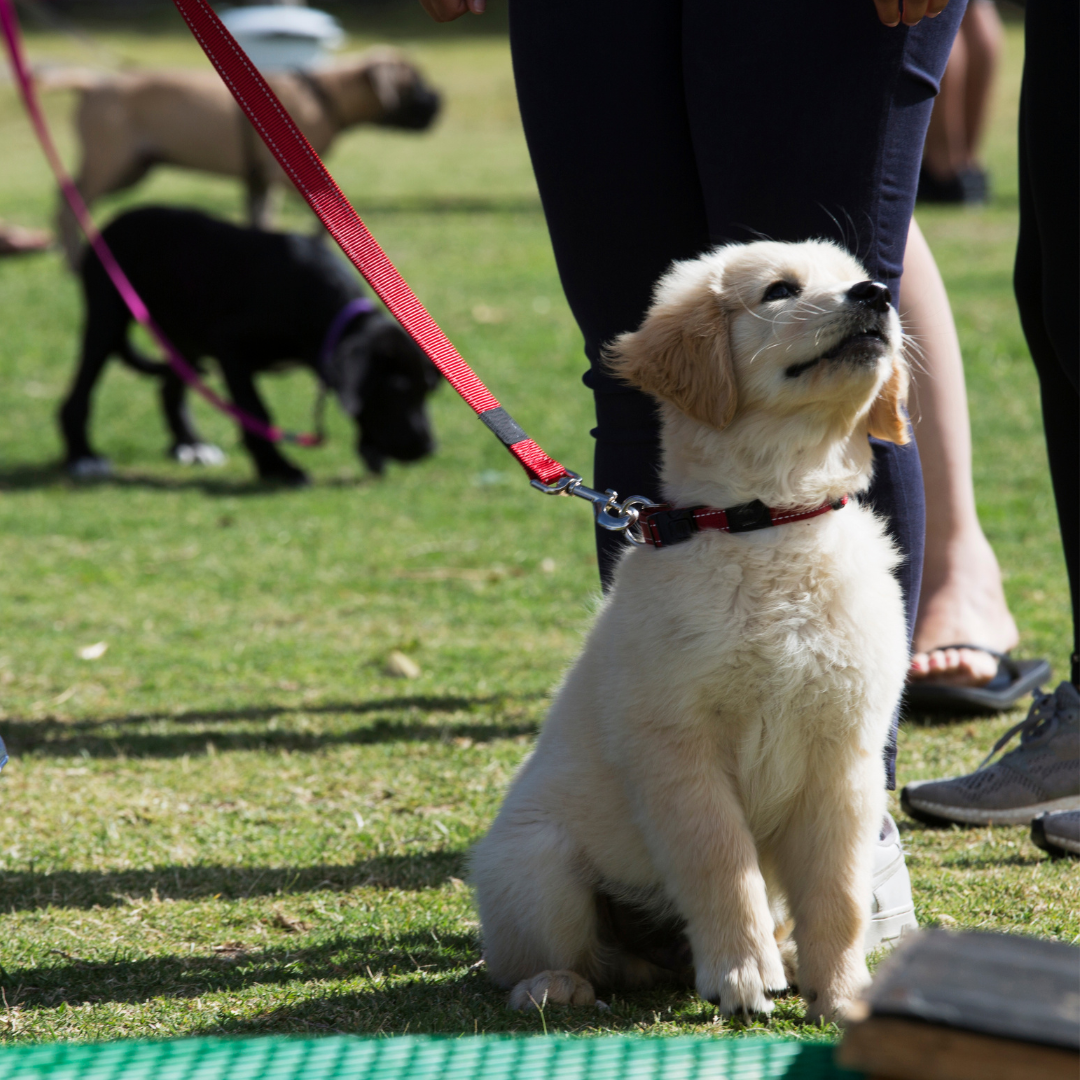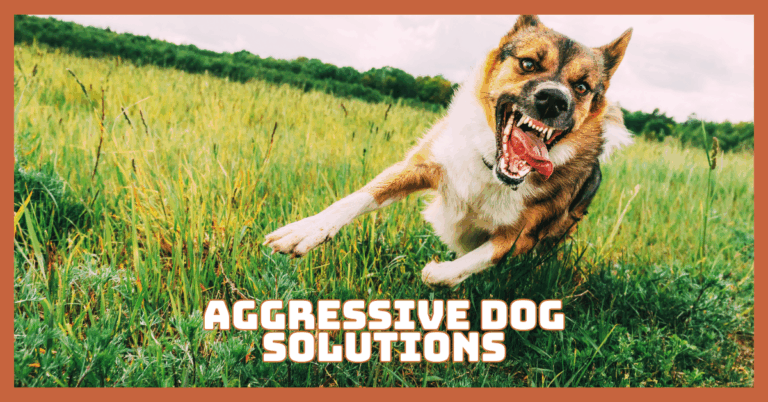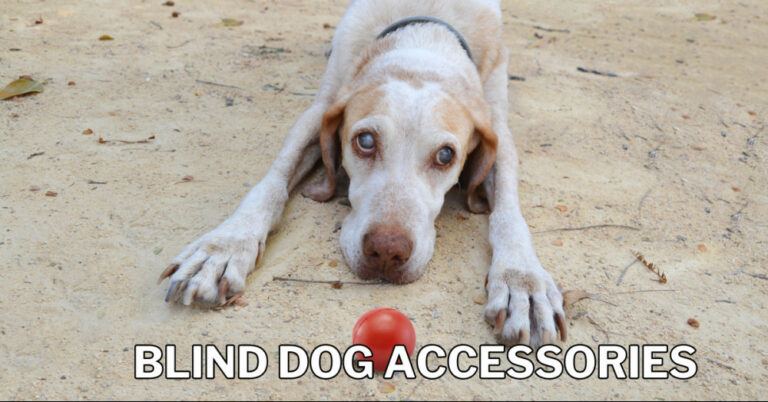How To Choose The Right Puppy
How To Choose The Right Puppy
Choosing a puppy can be a thrilling experience, but it's important to make an informed decision to ensure that your new furry friend will be a good fit for your lifestyle and home environment.
There are many factors to consider when selecting a puppy, from breed characteristics to temperament, health, and training needs. In this blog, we'll explore key tips on choosing the right puppy for you and your family to enjoy a lifetime of companionship and happiness with your new best friend.

1. Research Breeds
Different breeds have different temperaments, energy levels, and requirements for exercise and grooming. Make sure the breed you choose fits your lifestyle and personality. Some species are better suited for families with children, while others may be better for single people or seniors.
Researching different breeds is an important step in choosing the right puppy. Researching breeds requires considering temperament, size, energy level, and grooming requirements. For example, some breeds, such as the Bichon Frise or Poodle, are hypoallergenic and may be a better choice for people with allergies.
Some breeds, like the Great Dane or Bernese Mountain Dog, are larger and may need to be better suited for apartment living. Similarly, some breeds, like the Border Collie or Australian Shepherd, are highly active and require a lot of exercises and mental stimulation.
When choosing a breed, it's important to consider your personality, lifestyle, and living space to select a breed that will be a good fit for you and your family.
In addition to the factors mentioned above, it's also important to consider a breed's temperament. Different breeds have different temperaments, ranging from energetic and outgoing to calm and reserved.
For example, Labrador Retrievers are known for being friendly and outgoing, making them a popular choice for families with children.
On the other hand, the Chow Chow breed can be aloof and reserved and may not be the best choice for families with young children.
Additionally, some breeds may have a predisposition to certain health issues, so it's important to research any potential health concerns before choosing a breed.
By taking the time to research different species, you can make an informed decision and select a puppy that will be a great fit for your lifestyle and personality.
Another factor to consider when researching breeds is the grooming requirements. Some breeds have long, flowing coats that require daily brushing and regular grooming appointments, while others have short, low-maintenance coats.
Breeds like the Shih Tzu or the Afghan Hound require regular grooming to keep their coats in good condition, while breeds like the Boxer or the Doberman Pinschers have short coats that are easier to maintain.
Grooming can be time-consuming and expensive, so choosing a breed that matches your grooming preferences and budget is important. Researching different breeds is an important step in selecting the right puppy.

2. Choose A Reputable Breeder
Look for breeders who have a positive reputation in the community. Talk to other dog owners, breed clubs, or veterinarians for recommendations. You can also check online reviews or social media to learn more about the breeder's reputation.
A reputable breeder should conduct health testing on both parents before breeding to ensure the puppies are free from genetic diseases. Ensure that the breeder has completed health testing on the parents.
A good breeder should be transparent about their breeding practices and willing to answer any questions you have. They should also allow you to visit their facility and see how the puppies are raised.
Meeting the puppy's parents can give you an idea of what the temperament and behaviour of the puppy might be like. A reputable breeder will allow you to meet the parents and spend time with them.
A reputable breeder should provide a written contract outlining the sale terms, health guarantees, and other important information. A good breeder should offer follow-up support and advice after you take your puppy home. They should be willing to answer questions and provide guidance on training and care.
By choosing a reputable breeder, you can get a healthy and well-adjusted puppy that will be a great addition to your family. Don't be afraid to ask questions, and do your research to find the right breeder for you.

3. Consider Your Living Space
When choosing the right puppy, it's important to consider your living space. Different breeds have different activity levels and space requirements, so selecting a puppy that will be comfortable in your home is essential.
For example, if you live in an apartment or a small house with limited outdoor space, a small breed like a Chihuahua or a French Bulldog may be better than a large breed like a Great Dane or a Saint Bernard.
Similarly, if you have a backyard or live in a rural area, a high-energy breed like a Border Collie or a German Shepherd may be a good fit for you. It's also important to consider the noise level of your living space.
If you live in an apartment building with thin walls, a breed prone to barking, like a Beagle or a Dachshund, may not be a good choice.
Ultimately, when considering your living space, it's important to choose a breed that will be comfortable and happy in your home while also being considerate of your neighbours and any noise restrictions that may be in place.
Additionally, it's important to consider your living space in terms of your ability to provide exercise and mental stimulation for your puppy. Suppose you live in a small apartment without access to a yard or a nearby park.
Providing the necessary training and playtime for a high-energy breed like a Husky or a Jack Russell Terrier may be challenging. On the other hand, if you have a larger living space or access to nearby parks and outdoor areas, you may be better suited for a more active breed.
It's also important to consider your puppy's schedule and availability when providing exercise and stimulation. If you work long hours or have a busy schedule, a breed that is more low-energy and independent, like a Bulldog or a Greyhound, maybe a better choice.
Overall, considering your living space is important in choosing the right puppy. By selecting a breed well-suited for your living situation and your ability to provide exercise and stimulation, you can ensure that your new furry family member will be happy and healthy in their new home.

4. Observe The Puppy
Observing the puppy you're considering is another important step in choosing the right puppy. Observe their behaviour and temperament when meeting a potential puppy to understand their personality.
Are they shy or outgoing and confident? Do they seem calm and relaxed, or hyper and easily excitable? These observations can help determine your lifestyle and living situation.
Additionally, watch for signs of any health issues or physical abnormalities, such as limping or difficulty breathing, which could indicate underlying health problems. It's also a good idea to interact with the puppy and see how they respond to you.
Do they seem comfortable around people, or are they skittish and nervous? Do they play well with toys and other objects, or do they seem disinterested or aggressive?
These observations can show how the puppy may behave in your home and whether it will fit your family well. Overall, observing the puppy is an important step in choosing the right one and can help ensure that you find a puppy that is healthy, happy, and well-suited to your lifestyle.
Another thing to consider when observing the puppy is their socialization. Puppies socialized properly will be more confident and better equipped to handle new situations and people.
You can assess their socialization by observing how they interact with people, other animals, and new environments. For example, if the puppy seems comfortable and curious around new people and animals, it indicates they have been properly socialized.
Conversely, suppose the puppy seems nervous, aggressive, or overly fearful in new situations. In that case, it may be a sign that they have not been socialized properly, which could lead to behavioural issues.
Overall, observing the puppy's behaviour and socialization is an important step in choosing the right one and can help ensure that you find a puppy that is well-adjusted and adaptable to new situations.

5. Consider Training
When choosing a puppy, it's important to consider its potential for training. All puppies will require some training, but some breeds may be more receptive to training than others. Before choosing a puppy, research their breed's tendencies and typical temperament to understand their potential for movement.
For example, some species, like Border Collies, are highly intelligent and excel at activity, while others, like Beagles, may be more stubborn and independent, making exercise more challenging. Additionally, consider what training you may want to pursue with your puppy, such as obedience training or specific tasks like agility or therapy work.
Depending on the breed, some activities may be more suitable than others. When meeting a potential puppy, ask the breeder about their experience with training and their recommendations for training specific breeds or individual puppies.
Remember that while breed tendencies can be a helpful guide, every puppy is an individual, and their personality and temperament will also play a role in their potential for training.
Overall, considering the potential for activity is an important step in choosing the right puppy and can help ensure that you find a puppy well-suited to your training goals and preferences.
It's also important to remember that training is an ongoing process and will require time and effort. Consider your level of experience with training, as well as your willingness to commit to ongoing training and socialization.
If you're a first-time dog owner or need more experience with training, seek out resources like puppy training classes or professional trainers to help guide you through the process.
Overall, considering the potential for training and your willingness to commit to training and socialization is an important step in choosing the right puppy and can help ensure that you find a puppy that is a good fit for your lifestyle and training goals.

6. Consider Age
When choosing a puppy, age can also be an important factor. Puppies are typically available for adoption around 8 weeks, but some breeders may keep them until they are 12-16 weeks old. While younger puppies may be cute and cuddly, they also require more time and attention for training and socialization.
Additionally, they may still need to develop their full personalities, making it more difficult to predict their temperament and behaviour as adults.
On the other hand, older puppies or young adults may already have some training or socialization, making them a good fit for those who may not have as much time for exercise or socialization.
However, it's important to note that older puppies or young adults may also have established behaviours or habits that can be more difficult to change than with a younger puppy. When considering age, consider your lifestyle, level of commitment to training and socialization, and your preferences for a puppy's size, temperament, and energy level.
Overall, considering age is an important step in choosing the right puppy and can help ensure you find a puppy that fits your lifestyle and preferences.
Younger puppies may require frequent visits to the veterinarian for vaccinations and check-ups, while older puppies or young adults may already have had some of these procedures completed.
Overall, age is just one factor to consider when choosing a puppy. Still, it can have important implications for their health, behaviour, and training needs, so it's important to consider the age range best for you and your family.

7. Get Advice From A Professional
A veterinarian or animal behaviourist can guide breed selection based on your lifestyle, living situation, and other factors. They can help you choose a breed compatible with your needs and preferences.
A professional can guide training techniques and help you establish a training plan that will work for you and your puppy. They can advise on common behaviour issues such as house training, biting, and chewing.
A professional can advise on all aspects of puppy care, including nutrition, vaccinations, and grooming. They can help you ensure that your puppy stays healthy and happy.
A veterinarian or animal behaviourist can help you determine whether you are ready to own a puppy. They can discuss the time and financial commitments involved in caring for a puppy and help you make an informed decision.

8. Be Prepared For Responsibilities
Puppies require a lot of time and energy. They need daily exercise, training, and socialization, which can take up much of your time. Be prepared to commit to providing your puppy with the attention they need to stay healthy and happy.
Puppies require regular veterinary care, including vaccinations, check-ups, and preventative care. Be prepared to budget for these expenses and to take your puppy to the vet as needed.
Owning a puppy also comes with emotional responsibility. Be prepared for the potential for separation anxiety, behavioural issues, and the long-term commitment to providing a loving and stable home.
The cost of owning a puppy can add up quickly. Be prepared to budget for food, toys, grooming, veterinary care, and other expenses.
The training and socialization of puppies will make them well-behaved and well-adjusted adults. Be prepared to invest time and effort into training your puppy and providing them opportunities to socialize with other dogs and people.

9. Prepare For The Financial Responsibility
Puppy prices vary widely depending on the breed, location, and breeder. Make sure to research different breeders and choose reputable and ethical ones.
Puppies require special food and supplies, such as toys, bedding, and grooming tools. Make sure to budget for these ongoing expenses.
Regular veterinary care, including check-ups, vaccinations, and preventative maintenance, is essential for your puppy's health. Budget for these expenses and be prepared for unexpected medical expenses.
Puppies require training and socialization to become well-behaved and well-adjusted adult dogs. Consider the cost of training classes or hiring a professional trainer.
It's a good idea to have an emergency fund set aside for unexpected medical expenses or other emergencies that may arise.
Remember that the cost of owning a puppy can add up quickly, so it's important to plan and budget accordingly. By preparing for the financial responsibility of pet ownership, you can provide your new furry friend with the care and attention they need to thrive.

Conclusion
Choosing the right puppy for you and your lifestyle is an important decision that requires careful consideration. By taking the time to research different breeds, selecting a reputable breeder, seeking advice from professionals, and being prepared for the responsibility involved, you can set yourself up for success as a new puppy owner.
Remember that owning a puppy is a long-term commitment that requires dedication, patience, and love. With the right preparation and mindset, you can provide your new furry friend with a happy and healthy life. So take your time, do your research, and choose the puppy that is the best fit for you and your lifestyle.
I trust you enjoyed this article on How To Choose The Right Puppy. Please stay tuned for more blog posts to come shortly. Take care!
JeannetteZ
My #1 Dog Training Recommendation
Your Opinion Is Important To Me
Thoughts? Ideas? Questions? I would love to hear from you. Please leave me your questions, experience, and remarks about this article, How To Choose The Right Puppy, in the comments section below. You can also reach me by email at Jeannette@Close-To-Nature.org.
Disclosure
This post may contain affiliate links. I earn from qualifying purchases as an Amazon Associate and other affiliate programs. Please read my full affiliate disclosure.
You might also enjoy these blog posts:
A Full Overview Of Dogs And Their Activity
Best Ways To De-Stress And Be Relaxed In Nature
How To Prepare To Plant A Vegetable Garden
The Most Stressful Cities In The World







